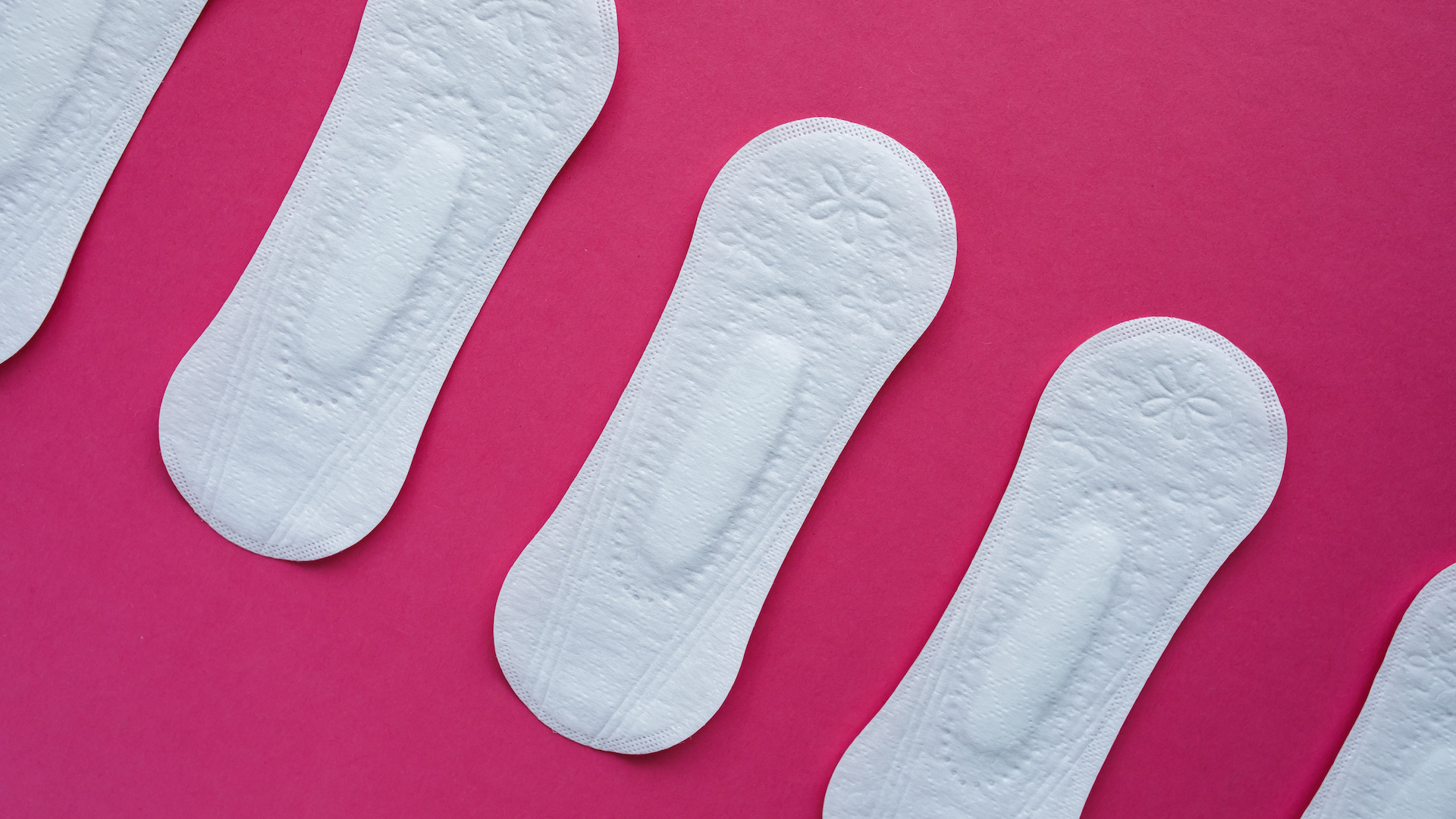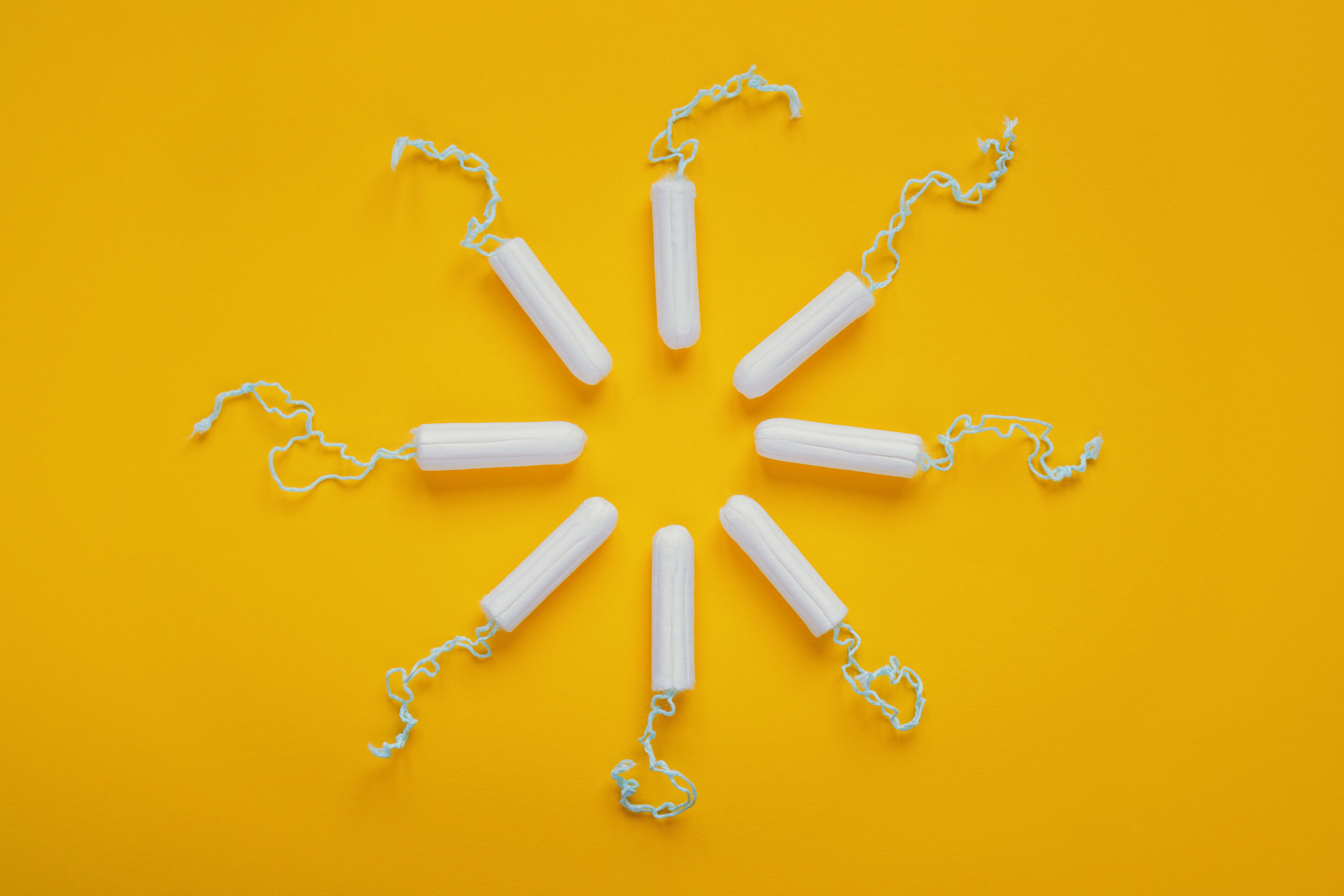Why did I get my period twice in one month? Medical experts weigh in
Though not abnormal, two cycles in one month is certainly worth mentioning to your doctor


For those who've asked, "Why did I get my period twice in one month," rest assured you're not alone—Aunt Flo can be unpredictable.
Double the monthly visit is not always a cause for concern, but it is certainly a reason to prioritize your gynecological health. If your calendar is filling up with multiple cycles but your tampon stash is running low, see what the health experts have to say.
Why did I get my period twice in one month?
Don't go into panic mode, especially if you're accustomed to shorter cycles. Adult cycles typically range from 24 to 38 days, according to Healthline, but every situation is unique.
"If you have two cycles in one month, it is possible for that to be completely normal," says Kirsten Karchmer, founder of menstrual wellness company Brazen.
However, you'll want to take note of any adjustments to your routine that could have contributed to the increased frequency.
"If it’s something that’s never happened before, it’s likely due to some stressor or change," she continues. "That could be a dietary change, a change in stress or a COVID vaccination, gaining weight, losing weight or changing your exercise. Read that as a signal as 'my body is really speaking to me.'"
For those who want to protect themselves against the virus, do note that the COVID 19 vaccine can delay your period. Dr. Kathryn Clancy, Period Podcast host and a professor studying the menstrual cycle at the University of Illinois, surveyed women who experienced both accelerated and delayed cycles, heavier flows and more intense cramps than normal. However, menstruation is likely revert back to normal after one or two cycles following the vaccine.
Given all that we've experienced over the past two years, pandemic and otherwise, it's more important than ever to find ways to manage the stress, and in turn, cope with period pains and symptoms more effectively, according to Karchmer. Try starting with the best meditation apps and self-care day ideas. If you like experimenting, have a look at our go-to crystals for anxiety.
If you're trying to find the appropriate contraception for you and studying the side effects of birth control, do note that your monthly cycle is bound to get a little unpredictable, at least at first. While birth control pills oftentimes make periods lighter, IUDs might cause spotting or irregular periods.
But there are other reasons to raise the red flags. If stressors like weight fluctuation or dietary changes are not at play, health-related reasons could be the culprit. Per Flo and Healthline, conditions that might cause shorter cycles but more frequent bleeding include but are not limited to:
- Cysts
- Lack of ovulation
- Cervical or endometrial polyps
- Hormonal imbalance
- STIs
- Cervical complications
- Miscarriages
According to Flo, conditions that result in vaginal bleeding—such as perimenopause, uterine fibroids or thyroid issues—are the main reasons behind multiple periods in one month. Each factor results in different symptoms: frequent urination, lower back pain and painful intercourse for uterine fibroids; constipation, pale skin and fatigue for thyroid issues.

When to get a professional opinion
"If you’re having short cycles for more than two or three cycles, it will never hurt to bring it up to your OBGYN," Karchmer says.
Kate Smith—education manager of Hey Girls, a community interest company aiming to end period poverty in the UK—always recommends seeking answers from the pros.
"Getting your period twice in one month is certainly unusual but not completely abnormal—irregular periods do happen," she says. "It could be as normal as an infection but could also be the early signs of endometriosis, fibroids or something worse. If in doubt, seek medical advice from your doctor for reassurance.”
A medical expert will need to determine the reason for your increased periods before providing a solution. This means that it's always important to reach out to the pros whenever you have concerns; your period is not only an indication of your fertility but also your overall health and wellbeing and should not be ignored.
For more questions about your cycle and reproductive health, have a look at our guide of what gynecologists want you to know—from questions about discharge to lubrication, sex and birth control and everything in between.
Kirsten Karchmer is a health-tech pioneer, author and the founder of Brazen. She worked with over 10,000 women while spearheading The Texas Center for Reproductive Acupuncture.
Kate is the education manager of Hey Girls, the "award-winning buy-one, donate-one social enterprise, creating plant-powered period products that fund the fight to end period poverty in the UK."

Need a TV show recommendation? Maybe a few decor tips? Danielle, a digital news writer at Future, has you covered. Her work appears throughout the company’s lifestyle brands, including My Imperfect Life, Real Homes, and woman&home. Mainly, her time is spent at My Imperfect Life, where she’s attuned to the latest entertainment trends and dating advice for Gen Z.
Before her time at Future, Danielle was the editor of Time Out New York Kids, where she got to experience the best of the city from the point of view of its littlest residents. Before that, she was a news editor at Elite Daily. Her work has also appeared in Domino, Chowhound, and amNewYork, to name a few.
When Danielle’s not writing, you can find her testing out a new recipe, reading a book (suggestions always welcome), or rearranging the furniture in her apartment…again.